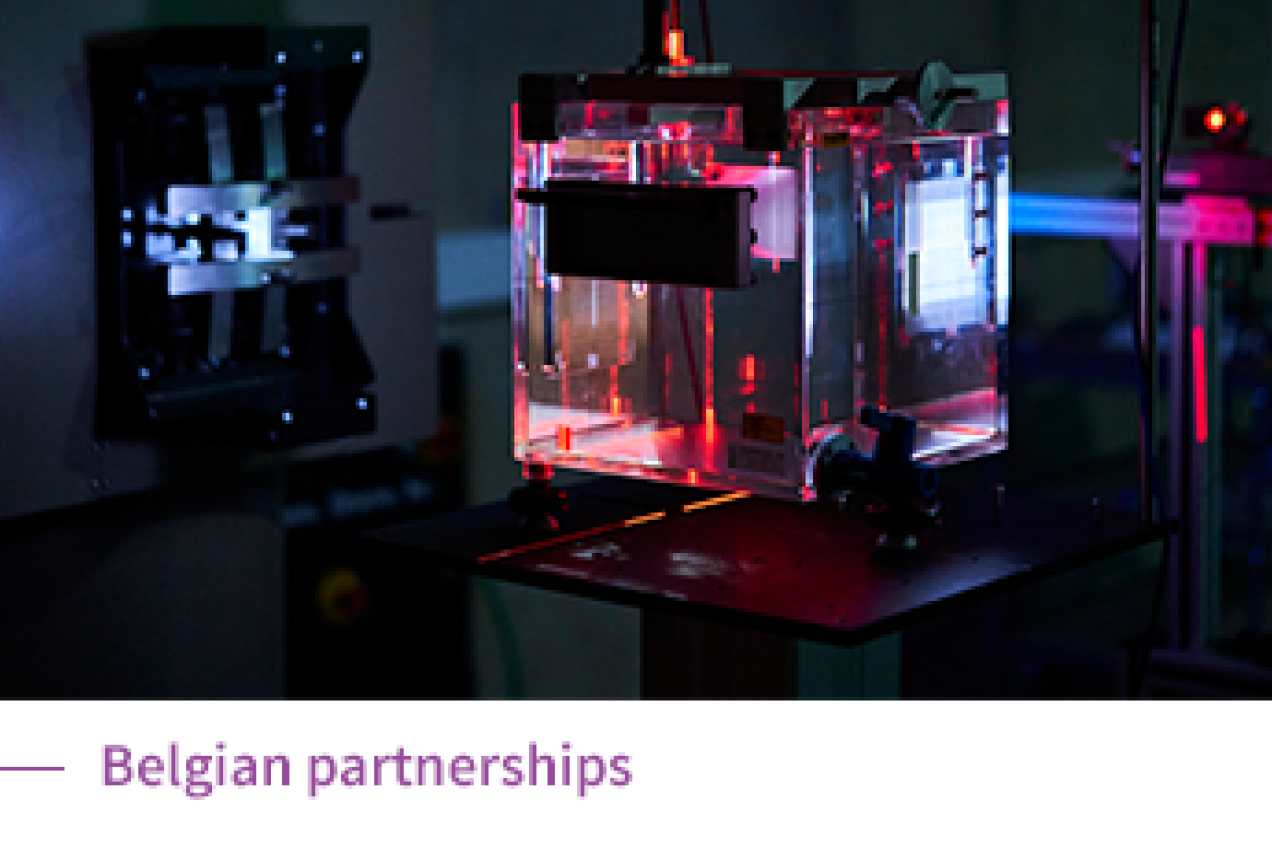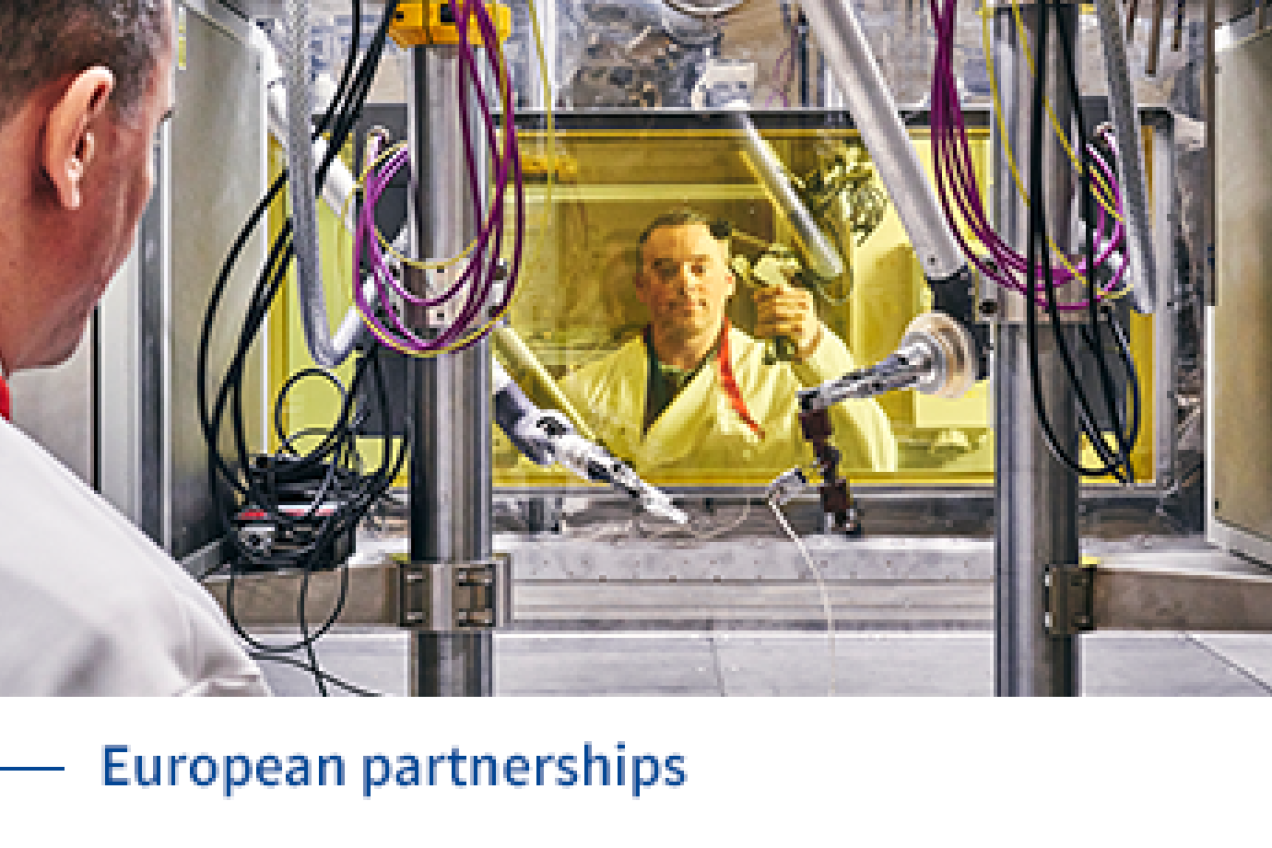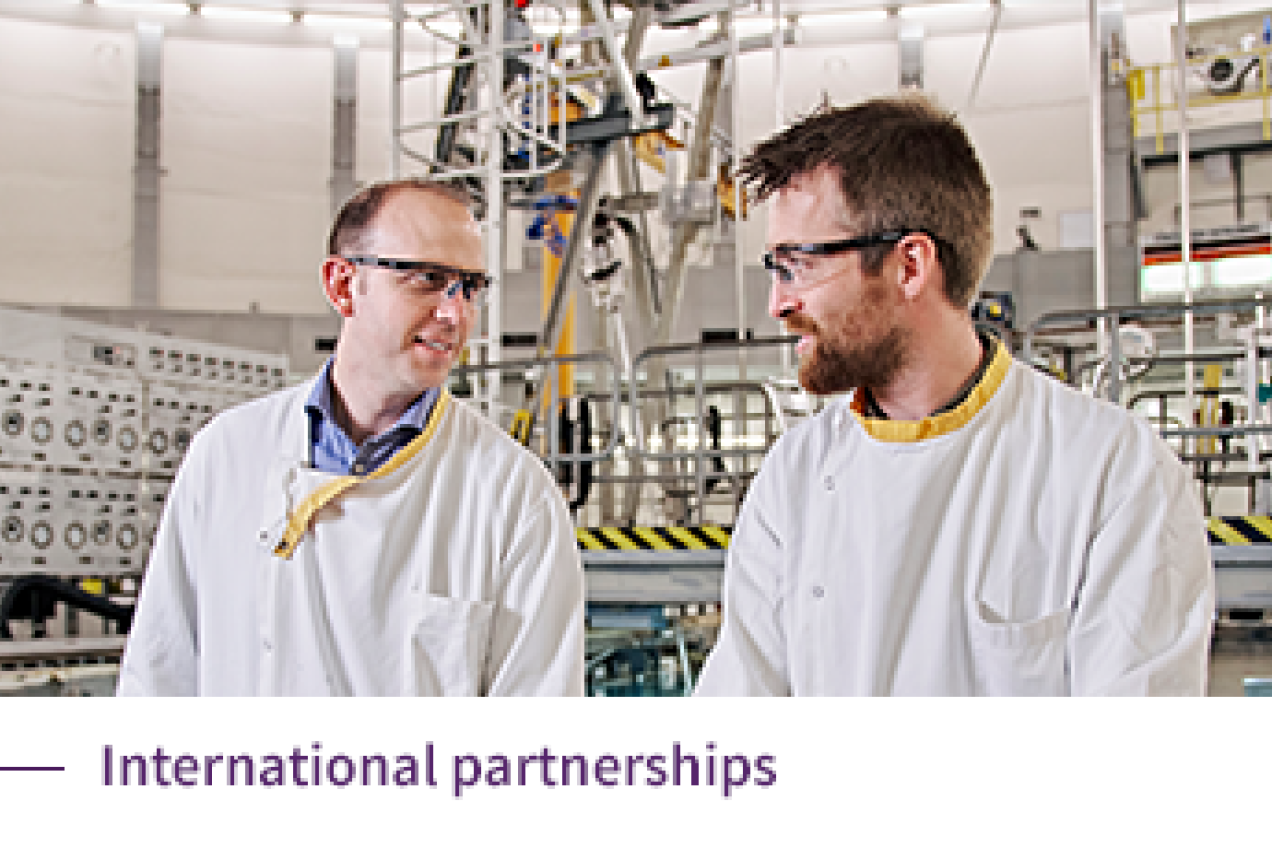Joining forces makes treatment of cancer patients more effective
SCK CEN and IBA pave the way to production of actinium-225 for patient use
The nuclear research centre SCK CEN and the Belgian company IBA want to bring research and development on actinium-225 up to cruising speed. Indeed, the radioisotope possesses the resounding potential to treat cancers more effectively. By working towards large-scale production, both partners are helping to make the innovative cancer therapy widely accessible.
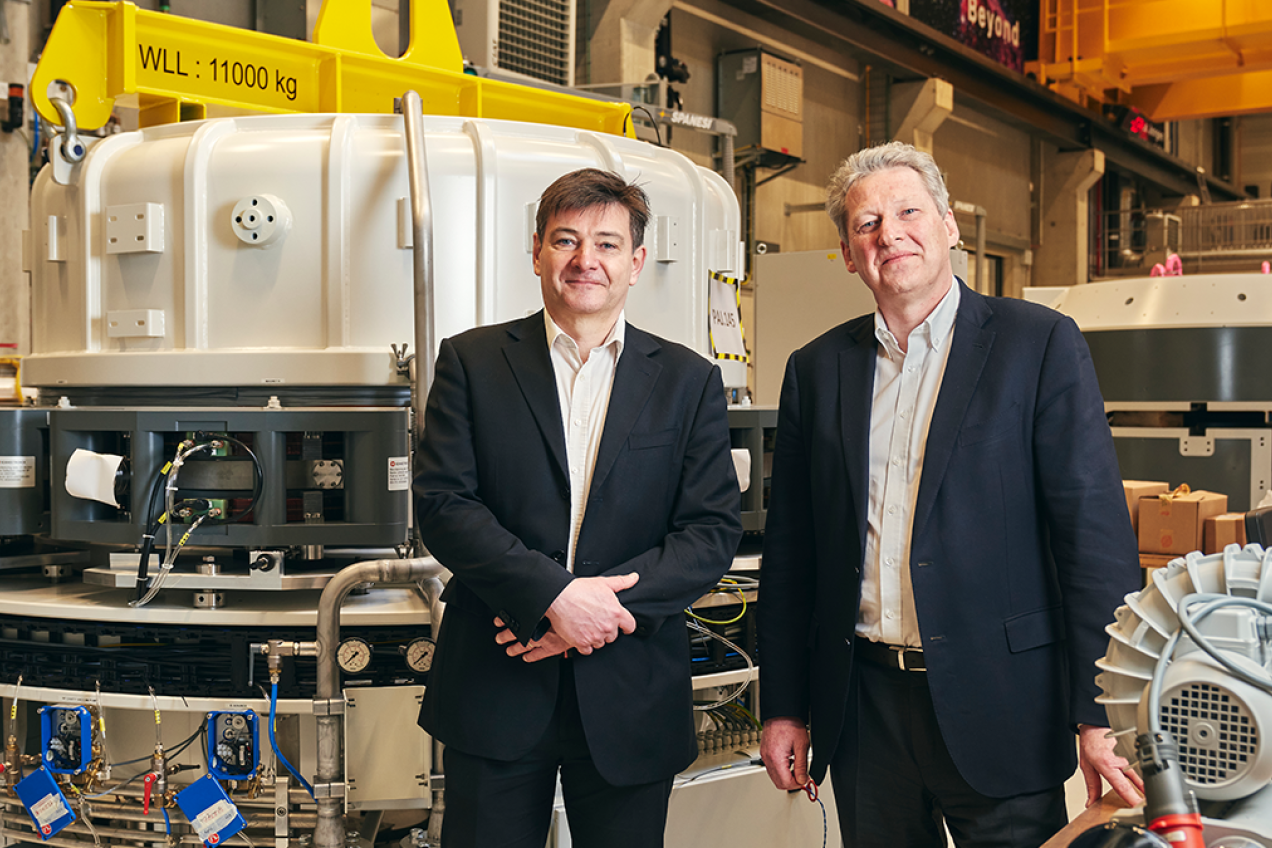
Today, numerous studies are underway on the potential of actinium-225 to fight cancer. Initial results show that the theranostic radioisotope completely eliminates cancer cells, rather than just inhibiting tumour growth. The risk of recurrence also appears to decrease. The list of cancers for which actinium-225 can make a difference is long. Prostate cancer is at the top of that list. It is closely followed by lung, colon, breast, pancreatic, blood and kidney cancer and glioblastoma, the deadliest form of brain cancer. Millions of patients will therefore benefit from the rapid market entry of cancer therapies containing actinium-225.
They are expected to effectively enter the market in a few years. The prerequisite is that pharmaceutical players can count on reliable production, including during the clinical trials. That is where the shoe pinches. “At least for now,” Pascal De Langhe, Director of Business Development & Support at SCK CEN, corrects. Indeed, last year, the nuclear research centre and the Belgian listed company IBA concluded a partnership that should lead to large-scale, reliable production of actinium-225. “The patients who have access to this promising radioisotope, with the current production capacity, can be counted on one hand, so to speak. This is also how actinium-225 got its nickname: the rarest drug on earth. By working together, we aim to fill acute market needs. The goal is to allow numerous patients to enjoy the benefits of this latest generation of nuclear medicine,” he clarifies.
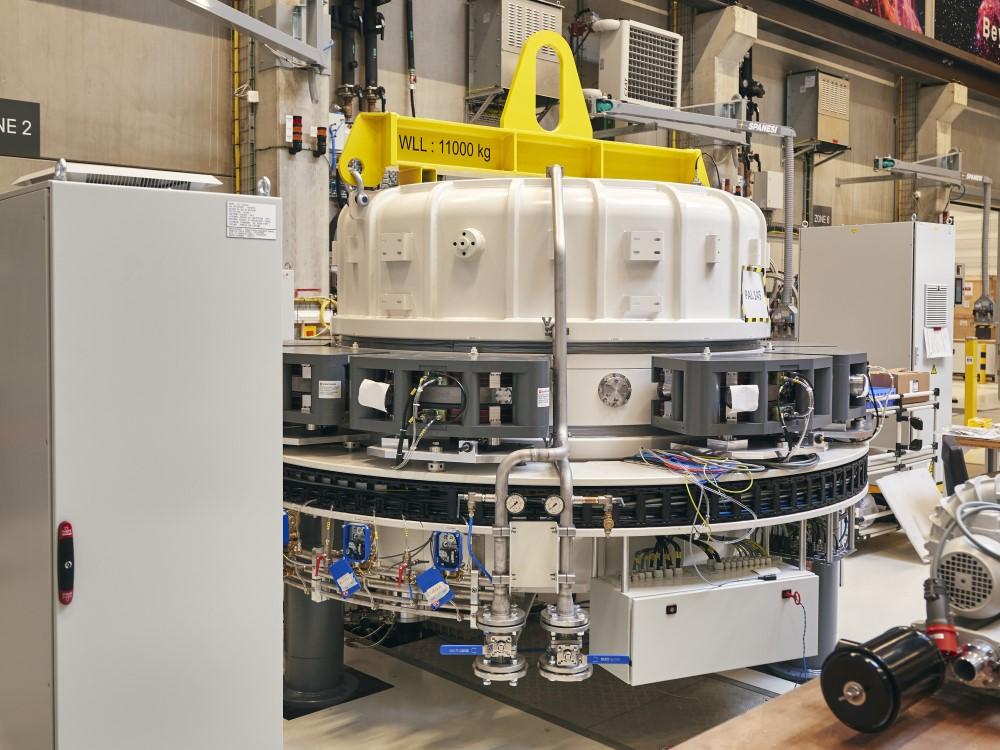
Two heavyweights
SCK CEN and IBA obtain actinium-225 through photonuclear reactions, in which a photon knocks a neutron out of the atomic nucleus of radium-226. This creates radioactive radium-225, which subsequently decays into actinium-225. A technically challenging process, but not for these two heavyweights with unparalleled expertise. SCK CEN is a leading nuclear research centre worldwide, while IBA is the reference in particle accelerator technology. “Our complementary knowledge and expertise fall together like two pieces of a puzzle,” explains De Langhe. “We have excellent core competencies in designing the target – the radium target that will be irradiated – and the necessary radiochemistry to get a pure final product. IBA knows the technology of the particle accelerator, the radiation source, like no other. In addition, the company has the engineering experience to turn the plant design into reality.”
Phased approach
The strategic partnership comprises several phases. First of all, both partners conducted an in-depth evaluation of the technical and economic feasibility of the project. “How many cancer patients are in need of this new cancer therapy? To what extent will the demand for actinium-225 increase? What facilities do we need to produce actinium-225? Do the targets we develop deliver the desired production yield? What technical optimisations do we still need to implement? … In this feasibility study, we take all kinds of factors into account and make estimates that we have validated by external experts,” De Langhe explains. Both partners are optimistic that the feasibility study will have a positive outcome. Following such positive outcome, they plan the construction and commissioning of a production unit on the site of SCK CEN in Mol, Belgium.
Circular economy
The raw material is important to the success of this project. SCK CEN is one of only a few organisations that has large quantities of high-quality radium-226. “This stock allows us to produce actinium-225 on an industrial scale,” De Langhe says. In fact, radium-226 is normally radioactive waste. “Now, we can convert that waste into more targeted cancer therapies with higher therapy response rates.” This way, this project also contributes to the circular economy.
Alignment with Belgian coalition agreement and European recovery plan
The collaboration fits within the implementation of the Belgian coalition agreement, which aims for significantly more and better cancer treatments. It is supported by Pierre-Yves Dermagne, Belgian Deputy Prime Minister and Minister of Economy and Employment, Tinne Van der Straeten, Belgian Minister of Energy, and Thomas Dermine, Belgian State Secretary for Economic Recovery and Strategic Investments. Furthermore, the initiative is also in line with the recent European recovery plan for Belgium. In that plan, the European Commission includes investments for the development and production of lutetium-177 and actinium-225, two promising isotopes.
Fighting cancer with precision
The alpha emitter actinium-225 is an emerging talent among theranostic radioisotopes. With the radiation it emits during the decay, it can destroy cancer cells. The cancer cells are destroyed through “precision bombardments”, sparing the healthy tissue.

